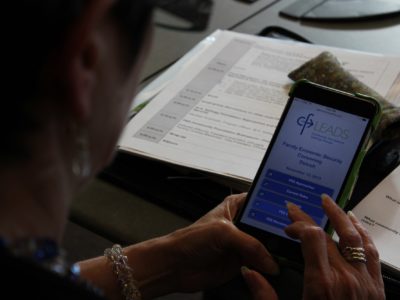Families are economically secure when they have enough stable income or other resources to support their standard of living now and in the foreseeable future, even when unexpected expenses or changes arise such as unemployment or illness.
In early 2015, we surveyed U.S. community foundations to ask how they are working to help low-income families achieve economic security by:
- getting and keeping employment,
- increasing their knowledge of proven resources to help grow financial assets; and
- build long-term economic stability and social mobility.
Survey Results
The survey asked community foundations to identify their grantmaking and non-grantmaking activities in four specific categories:
- Asset Development: programs and policies — for example, financial-literacy and debt-reduction services — that help low-income people increase their income and financial security.
- Workforce Development: programs and policies — e.g., job training and scholarships — that build skills and improve employability.
- Making Work Pay: programs and policies — e.g., paid sick leave and increases in the minimum wage — that build the value of work and make it easier for low-income people to keep the jobs they get.
- Economic and Regional Development: programs and policies — e.g., transportation planning, community wealth-building strategies — that improve the overall economic environment, including for low-income workers.
In all, 117 community foundations responded to the survey, including 59% of the 100 largest community foundations. The overall response rate was 17%.
To build on these findings, CFLeads created a Family Economic Security Alliance to focus on two issues related to these categories: asset development (particularly children’s savings accounts) and community wealth building (through job creation, entrepreneurship, and connections to anchor institutions).

Family Economic Security Action Alliance
The FES Alliance brought together nine community foundation teams to further an agenda that helped low-income families increase their financial self-sufficiency and stability.
